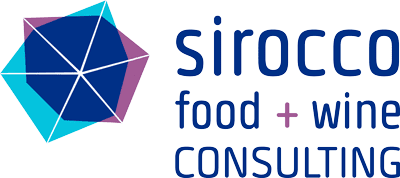Your food business is doing great. A potential major customer has contacted you. You receive the good news that they plan to list your food products! The only contract requirement is for you to secure a HACCP certification. You and your team have prepared for it for a long time, and the big day is finally here — your HACCP audit is tomorrow — and you feel very nervous… You don’t know what to expect, as this is your first certification audit. Let’s walk through the process and hopefully ease your stress.
Day of HACCP Audit
First things first, the auditor shows up at your door. While this person is a food safety expert, he/she is still a visitor. Ensure that the auditor signs in according to your Visitor Policy. It will show the consistency of your food safety program.
The opening meeting comes next, the opening meeting is for the auditor to confirm the scope of the audit and get acquainted with the HACCP team. A HACCP audit is a non-accredited audit in North America your HACCP audit service provider will use their own HACCP checklist based on the Codex HACCP guidelines. This checklist is available to you prior to the audit. A HACCP audit is also site-, process- and product-specific. If you were to relocate the business to other premises, you would need to repeat the process with the new site and ensure that HACCP pre-requisite programs have been implemented and documented.
For future re-certification audits, the opening meeting will also be an opportunity to evaluate any non-conformities identified during your last audit and review any changes made to the plan since the last visit.
In order for the opening meeting to be effective, you will want all members of the HACCP team to be present. It is a good idea to rehearse the opening meeting with the key players to ensure they are 100% aware of their duties and the scope of the HACCP plan and Critical Control Points.
Documented HACCP Plan
After the opening meeting, it is common for the auditor to start working on the documented HACCP plan(s). The HACCP plan(s) will give the auditor a comprehensive picture of the operations.
It will answer the following questions:
- What are the manufactured products and incoming materials/inputs? (Form 1 and Form 2 of Canadian FSEP)
- What is the overview of the manufacturing process? (Form 3 – Process Flow Diagram)
- How is your facility laid out? (form 4 – Plant Schematic)
- What are the Critical Control Points(CCP) to ensure the food is safe? (form 5-form 10/11)
It is critical to have up-to-date and accurate information at this stage.
Plant Tour
Once the auditor is familiar with the HACCP plan(s), they will usually proceed with the first plant tour. Just like the old saying goes, “seeing is believing” the auditor will verify that the written plans are properly implemented on the floor.
To ensure the audit is successful, there are three key questions that you must ask yourself before the auditor arrives:
- Which products shall be run on audit day?
- Which lines will be in operation?
- Which team members will be working?
Communicate ahead of time with your production manager to make sure that your team is working on a product they are most comfortable with.
The initial tour will be focused on any significant processes or product deviations that could jeopardize food safety. These may vary in seriousness, ranging from systemic issues (is a program missing?) to minor isolated problems (some tasks were not completed as per the frequency identified in the SOPs, records are missing, employees are not trained). Lots of audit notes will be taken during the plant tour.
Review Results
Once the auditor is back in the office, they will start to review your manufacturing practice procedures (“the HACCP pre-requisites”). It is a good idea to bring your manual of procedures to the meeting room or set up your computer system to display electronic documents on a large screen.
During this process, you will be required to answer questions such as the following:
- What is the objective of this procedure?
- At what frequency are tasks performed?
- May I see the records?
- Who completes and verifies the records?
- Is there a training document for the person in charge?
- May I speak to the person in charge of this procedure?
Observation & Employee Interaction
While reviewing your GMP manual, the auditor will go to the floor several times to observe. Each time, the auditor will focus on one aspect of your operations: process controls/critical control points, personal hygiene, cleaning, sanitation, food safety culture or shipping/receiving. During this phase, the auditor will likely interview your employees and ask them to describe their duty and the criteria they are following to ensure safety. You will want to rehearse this process with your employees (supervisors, line employees, and support staff) to ensure they are prepared and relaxed during the interview process.
Mock Recall & Mass Balance
During the HACCP audit, the auditor will conduct a mock recall and mass balance check, which will require a cross-functional team to work together efficiently to complete. Your team should have practiced the mock recall and mass balance exercises multiple times prior to audit day. This verification is required annually and should follow Codex Traceability or the tracing of finished goods forward to your immediate customers as well as the tracing of your ingredients and materials backwards to your immediate suppliers.
The auditor will also inquire about recalls and customer complaints. If you had food safety complaints or experienced a food recall, you will be asked to produce the corrective action records pertaining to these. Don’t panic at this stage as this is a common issue that food businesses face. The important part is to identify the root cause of the issue and correct it within the program. Proper documentation is critical when investigating any complaints or recalls.
Closing Meeting
Once the HACCP plan and GMP manual are reviewed, the auditor will request a closing meeting to review the findings. It is recommended to invite HACCP team members to participate in the closing meeting. While you will be made aware of the major findings, the full report will take a few weeks to finalize.
The audit will be scored and a minimum score will be required on your contract for you to be successful and pass the audit and in turn land the contract. You won’t have to wait for the final report to implement the needed corrective actions. You will be expected to submit corrective actions within a few weeks. Once the corrective actions are accepted by the auditing firm, you will receive your HACCP certificate and will be set for another year of safe and profitable food operation.
Your next objective will be to document any changes to your operations (changes to product specifications, the manufacturing process, and human resources) and re-certify the facility within one calendar year.
——
Sirocco Food + Wine Consulting provides GMP, HACCP and SQF certification services. Contact us to discuss your business needs.





